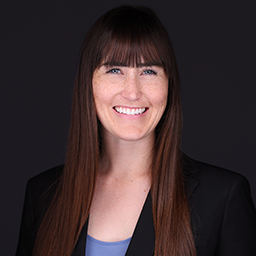
The letters “CPA” are synonymous with trustworthy financial advice in most people’s minds. CPAs (Certified Public Accountants) are indeed trained professionals who can help you navigate tax returns, understand your business structure, audit your company’s financial statements, and stay compliant. However, even the most well-meaning CPA may not always have the depth of specialized knowledge, tools, or forward-thinking strategies that today’s dynamic businesses demand.
Most CPAs do a fine job making sure you meet IRS deadlines and avoid obvious penalties. But if “filing on time” is the only box your accountant checks, you could be leaving five‐ to seven‐figure dollars on the table every single year. Below, we break down often‑missed areas—drawn from real client engagements—where deeper tax strategy translates directly into higher cash flow, better EBITDA, and a stronger valuation if you ever decide to sell.
In this blog post, we’ll explore some areas where your CPA might not be giving you the full picture—and what you can do to close these gaps.
Most CPAs excel at tax preparation, including small business taxes, and ensuring you stay on the right side of the IRS. But what about looking forward instead of just backward?
- Compliance vs. Proactive Planning: Many accounting professionals focus on getting their taxes filed accurately. A truly strategic approach requires ongoing planning that identifies opportunities for deductions, credits, and entity structuring well in advance of tax season.
- Solution: Seek out professionals who offer year-round tax planning and business advisory services. This approach helps you make the most of every opportunity to reduce your tax liability—legally and ethically. Compliance‑Only Mindset Strategic Mindset Past‑tense: “What happened last year?” Future‑tense: “How do we minimize next year’s tax today?” Reactive data entry, Proactive entity design, timing, and multi‑state mapping. Surprises on April 15: No‑surprise, rolling 12‑month projections
Quick win: Ask your accountant for a mid‑year projection plus cash‑flow impact. If they can’t deliver, you’ve outgrown them.
CPAs typically have broad knowledge, especially in preparing and auditing financial statements. However, industry-specific nuances can significantly influence your financial strategy. HVAC contractors overlook §179D. Tech firms forget the R&D credit. Real‑estate pros skip cost‑segregation. These aren’t edge‑case loopholes—they’re mainstream incentives worth 3–5 % of revenue.
- Unique Deductions & Credits: Different industries offer a range of specialized deductions and credits. Your CPA might not be aware of all of these if they don’t work extensively within your field.
- Solution: Work with a firm that has proven experience in your sector. They’ll better understand how to optimize expenses, identify targeted tax incentives, and ensure compliance with industry regulations.
While taxes are crucial, they’re not the only number that determines the health of your business. Real-time cash flow monitoring can mean the difference between taking on new opportunities and missing out on making more money.
- Why Cash Flow Matters: Strong cash flow ensures that you can handle emergencies, invest in growth, and maintain stable operations. Traditional CPAs may not offer this level of ongoing insight.
- Solution: Look for a financial solutions provider that integrates monthly bookkeeping, budgeting, and cash flow analysis into your overall strategy. This ensures you have a clear understanding of where your money is going and how to allocate it effectively.
Critical: Accrual books + cash‑basis tax = paying on revenue you haven’t collected. We sync invoicing, WIP accruals, and bonus‑depreciation timing so taxes follow cash, not GAAP mirages.

Many CPAs are great at filing taxes but may fall short when it comes to long-term strategic planning. It’s not about whether you can pay your tax bill today or manage long-term expenses, but also how your business can thrive tomorrow.
- Goal Alignment: Your business needs financial guidance that aligns with your vision—whether that’s scaling up, franchising, or creating a legacy to pass on.
- Solution: Partner with financial professionals who offer holistic services, including forecasting, budgeting, and even financial coaching. This helps ensure your business is structured and prepared for whatever comes next.
Let’s face it: Not all CPAs consider themselves business consultants, and some may not offer personal guidance on your business strategy. Some are primarily focused on taxes and may not have the bandwidth to advise on marketing strategy, product pricing, or hiring decisions.
For example, an S‑corp can save a solopreneur $15k+ in payroll taxes. A C‑corp might unlock §1202 100 % capital‑gain exclusion. The “right” choice changes as you scale or eye a sale.
- Holistic Perspective: A well-rounded financial partner will help you evaluate how each business decision impacts your profitability, cash flow, and tax obligations.
- Solution: Look for providers that offer CFO-level guidance or consultative services in addition to accounting. They can help you map out growth strategies, analyze ROI on potential projects, and fine-tune your operations.
The accounting world has seen an explosion of software solutions designed to streamline bookkeeping, expense tracking, and tax preparation. Some CPAs stick to older, familiar systems that might not be the most efficient or cost-effective.
- Efficiency & Accuracy: Modern platforms integrate seamlessly with your bank accounts, invoicing systems, and payroll. This can significantly reduce human error and time spent on repetitive tasks.
- Solution: Work with a firm that embraces the latest technology. By automating routine processes, you’ll free up time to spend on higher-value tasks that drive growth.
If you’re working with a large, traditional CPA firm, you might feel like just another client in a long line, especially during tax season. Big‑box firms assign you a new junior staffer every year. Our firm learns your story, spots unusual deductions, and calls you before problems snowball. Personalized service can be a game-changer in spotting unique opportunities.
- Trust & Consistency: When an advisor genuinely knows your business, they can tailor strategies to your situation instead of applying a generic template.
- Solution: Seek out a boutique or specialized firm that takes the time to understand your story and goals. Personalized attention often leads to better financial insights and stronger results.
Many CPAs are focused on making sure your return is filed correctly, but that doesn’t necessarily mean you’re protected if the IRS comes knocking.
- The Audit Risk Blind Spot: Filing a return is only half the battle. Without the right documentation and strategic foresight, even legitimate deductions can be questioned during an audit. Traditional CPAs may not build in safeguards or advise you on how to reduce your risk of triggering an audit in the first place.
- Solution: Partner with professionals who understand the audit landscape and proactively prepare you for scrutiny. That includes helping you establish defensible positions, maintain airtight documentation, and implement risk-minimizing practices year-round. This kind of preparation not only protects your business, but it also gives you peace of mind.
In short, if your CPA is only checking the compliance box, you’re subsidizing the IRS..
Financial management is about more than just avoiding audits—it’s about leveraging every advantage to grow and protect your business. Suppose your CPA isn’t keeping up with industry specifics, including federal income taxes and ongoing strategic planning, or advanced technology. In that case, you could be leaving money on the table or, worse, risking costly mistakes.
“A small business that misses out on R&D tax credits, accelerated depreciation, or fails to optimize entity structure can lose tens of thousands per year—money that could fund growth, hiring, or reserves.”
The takeaway? Don’t settle for a once-a-year tax preparer. Instead, consider a holistic financial partner who can guide you through every aspect of your business’s finances—from bookkeeping to preparing your tax return, tax strategy, cash flow management, and beyond.
| Feature | Typical CPA | Gildark Financial Solutions Group |
|---|---|---|
| Tax Filing Only | ✅ | ✅ |
| Year-Round Planning | ❌ | ✅ |
| Industry-Specific Expertise | ❌/Maybe | ✅ |
| Tech-Driven Automation | ❌ | ✅ |
| Cash Flow & Strategic Guidance | ❌ | ✅ |
| Audit-ready Documentation | ❌ | ✅ |
At Gildark Financial Solutions Group, we aim to fill in the gaps that a traditional CPA might overlook, such as understanding the benefits of various financial strategies and managing your expenses. Our services include:
With decades of combined experience, our team understands how to optimize your finances now and set you up for long-term success. We’re here to provide clarity, strategy, and peace of mind, so you can stay focused on doing what you do best—growing your business.
We don’t just file returns, we engineer tax‑efficient, growth‑ready businesses.
Ready to Elevate Your Financial Strategy?
If you’re ready to move beyond traditional CPA services and get the personalized, forward-thinking guidance your business deserves, contact us today. Our mission is to help you thrive, not just survive, by providing innovative, proactive, and reliable financial support every step of the way.



